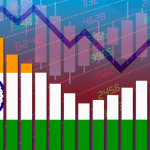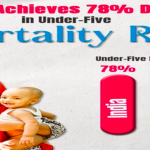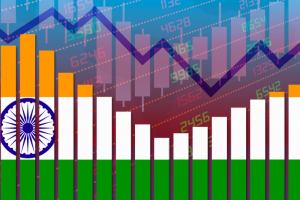Dr. Manmohan Singh was born on September 26, 1932, in Gah, a village in the Punjab province of undivided India, now in Pakistan. His early life was marked by the challenges of Partition, which saw his family migrate to Amritsar, India. Despite these hardships, Singh excelled academically, completing his matriculation from Punjab University in 1948. He went on to earn a First Class Honours degree in Economics from the University of Cambridge in 1957 and a D.Phil. in Economics from Nuffield College, Oxford, in 1962.
Academic and Early Career
Dr. Singh’s academic brilliance led him to a distinguished career in economics. He taught at Punjab University and the Delhi School of Economics, sharing his wealth of knowledge with future generations. His early works, such as “India’s Export Trends and Prospects for Self-Sustained Growth” (1964), critically examined India’s trade policies. Singh’s expertise soon saw him take on advisory roles in the Indian government, including positions as Economic Advisor in the Commerce Ministry and Chief Economic Advisor in the Finance Ministry.
https://twitter.com/narendramodi/status/1872328464658808947
Architect of Economic Reforms
In 1991, India faced a severe economic crisis, and Dr. Singh was appointed Finance Minister under Prime Minister P.V. Narasimha Rao. His bold reforms, including devaluation of the rupee, tax cuts, and privatization of state-run industries, transformed India’s economy and set it on a path of liberalization and growth. These reforms not only stabilized the economy but also opened it up to global markets, laying the foundation for India’s economic resurgence.
Prime Ministerial Tenure
Dr. Manmohan Singh became India’s 14th Prime Minister in 2004, serving two terms until 2014. As Prime Minister, he continued to champion economic reforms and social welfare programs. His government introduced landmark initiatives such as the Mahatma Gandhi National Rural Employment Guarantee Act (MGNREGA) in 2005, which provided 100 days of guaranteed wage employment to rural households. The Right to Information Act (2005) and the National Food Security Act (2013) were other significant legislations aimed at enhancing transparency and ensuring food security for millions.
https://twitter.com/RahulGandhi/status/1872334963229540738
Foreign Policy and International Relations
Dr. Singh’s tenure also saw significant strides in foreign policy. He played a crucial role in the Indo-US Civil Nuclear Agreement, which ended India’s nuclear isolation and paved the way for civilian nuclear cooperation with the United States. His pragmatic approach to foreign policy included efforts to improve relations with neighboring countries, such as Pakistan and China.
Legacy and Contributions
Dr. Manmohan Singh’s legacy is one of resilience, intellect, and transformative leadership. His contributions as an economist and Prime Minister have left an indelible mark on India’s economic and social landscape. Despite facing criticism and challenges, his policies and reforms have been instrumental in lifting millions out of poverty and setting India on a path of sustained growth. His humility, integrity, and dedication to public service continue to inspire future generations.
Dr. Manmohan Singh passed away on December 26, 2024, at the age of 92. His death marks the end of an era in Indian politics, but his contributions to the nation will forever be remembered.
Dr. Manmohan Singh’s journey from a small village in Punjab to the highest office in India is a testament to his resilience, intellect, and dedication to public service. His legacy as an economist and Prime Minister will continue to inspire and guide India for generations to come











Add Comment